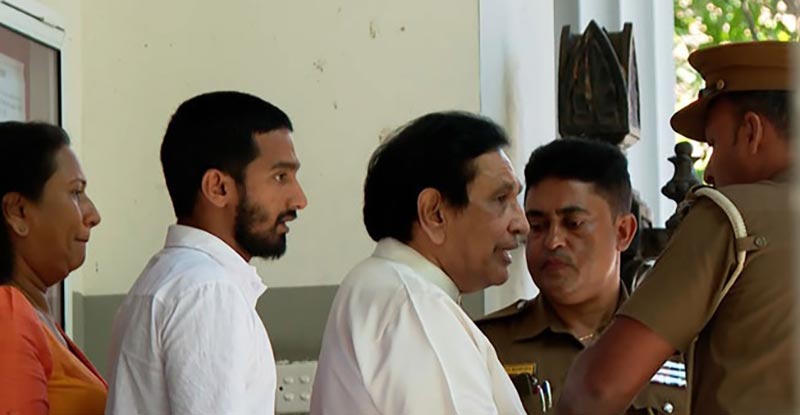Sri Lanka faced sustained scrutiny in Geneva as the UN Committee on Enforced Disappearances (CED) concluded its first examination of the island’s record under the International Convention on the Protection of All Persons from Enforced Disappearance last week, Tamil Guardian reported.
Experts welcomed the transposition of the Convention into domestic law but raised pointed questions about arbitrary detentions, “short-term” disappearances, intimidation of victims’ families and long-standing impunity.
Opening the dialogue, Committee Vice-Chair and Country Co-Rapporteur Olivier de Frouville said Sri Lanka “had been particularly affected by enforced disappearance,” citing waves of cases in the 1980s and 1990s and “throughout the conflict period until 2009.” He acknowledged steps taken since ratification, including the 2018 statute and the establishment of the Office on Missing Persons (OMP), describing the law as “a good transposition of the Convention.” However, he noted “several cases of arbitrary detention and ‘short-term’ disappearances reported in recent years, including cases of people being taken in white vans and held in secret detention for extended periods.” He asked, “How did the State ensure that the police enforced the zero-tolerance policy for such detentions?”
Country Co-Rapporteur Carmen Rosa Villa Quintana focused on the treatment of families. “The families of victims of enforced disappearance were reportedly threatened with intimidation or surveillance by the State and, in some cases, police had refused to accept complaints,” she said. “How did the State party ensure that victims’ families could submit complaints without fear of reprisals?” She added that Sri Lanka now had “an opportunity to progress and recognise all the rights of victims,” and urged action on access to information, protection measures and effective remedies.
Committee members also pressed for specifics on accountability. De Frouville asked whether Sri Lanka would recognise the Committee’s competence to receive individual complaints, and sought updates on cases sent to the High Court, the effectiveness of habeas corpus, and access to police and military archives. He queried the status of earlier recommendations to prosecute perpetrators and raised the issue of presidential pardons, asking how the State was “tackling impunity.” Villa Quintana asked how authorities respond when “perpetrators of enforced disappearance had been identified but not brought to trial,” and what measures were in place “to fight impunity” when officials accused of involvement were appointed to senior posts.
The Committee pursued questions on mass graves, data systems and the independence of institutions. Villa Quintana asked about the preservation of remains, DNA databases and whether Sri Lanka had sought international assistance for exhumations, noting reports of sites in the North-East and the long-running Chemmani case. The delegation replied that “all investigations of mass graves were carried out with judicial oversight,” that international standards were being implemented, and that exhumed remains were held by judicial medical officers. On Chemmani, they said “remains were ready for forensic investigations or exhumations,” and added that five Army personnel had been arrested in connection with bodies recovered there.
